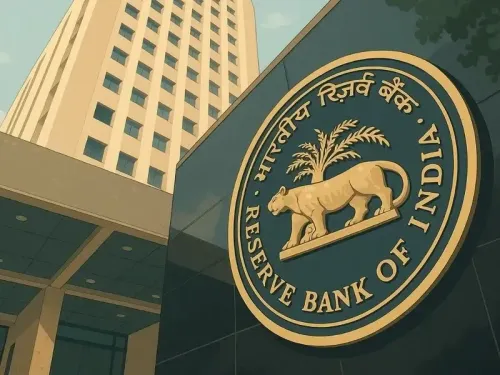Has India's Installed Solar PV Module Manufacturing Capacity Reached 91.6 GW?

Synopsis
Key Takeaways
- India's solar PV module manufacturing capacity has reached 91.6 GW.
- Government initiatives are focused on enhancing domestic solar manufacturing.
- The Production Linked Incentive (PLI) scheme supports high-efficiency solar modules.
- Ten solar parks with a total capacity of 10,276 MW have been approved in Rajasthan.
- Domestic Content Requirement (DCR) encourages local production.
New Delhi, Aug 6 (NationPress) India's installed solar PV module manufacturing capacity has now achieved 91.6 GW, as stated in the approved list of models and manufacturers (ALMM), which was presented to Parliament on Wednesday.
"The Ministry of New and Renewable Energy (MNRE), Government of India, has been actively implementing policies like the production linked incentive (PLI) and domestic content requirement (DCR) to foster the growth of local solar manufacturing," said Shripad Yesso Naik, Minister of State for New and Renewable Energy and Power, in a written response in Lok Sabha.
The minister highlighted that companies establishing solar manufacturing capacity have the flexibility to set up their units anywhere across India.
According to the ALMM published on June 30, a total of seven solar module manufacturing units, with a combined capacity of 10.12 GW, have been set up in Rajasthan, as noted by the minister.
The government is also rolling out a scheme for the "Development of Solar Parks and Ultra Mega Solar Power Projects."
Through this initiative, there is a provision for Central Financial Assistance (CFA) of up to Rs 20 lakh per MW or 30 percent of the project cost, whichever is lower, for the development of these parks, as per the minister's statement.
Furthermore, a CFA of up to Rs 25 lakh per Solar Park is allocated for preparing the Detailed Project Report.
As part of this scheme, the government has approved 10 solar parks with a total capacity of 10,276 MW in Rajasthan, as reported by the minister.
To invigorate domestic solar manufacturing, the government has implemented various strategic initiatives.
Among the pivotal measures is the Production Linked Incentive (PLI) Scheme for High Efficiency Solar PV Modules, backed by a financial allocation of Rs 24,000 crore.
This scheme aims to establish Giga Watt-scale manufacturing capabilities within the nation, as outlined in the written response.
Moreover, to encourage the utilization of domestically produced solar components, the government has enforced the Domestic Content Requirement (DCR) in several subsidy-linked programs such as the CPSU Scheme Phase-II, PM-KUSUM, and PM Surya Ghar- Muft Bijli Yojana.
Additionally, public procurement policies prioritize "Make in India" products, allowing only "Class-I local suppliers"—who possess at least 50 percent local content—to participate in bidding for certain renewable energy-related goods and services.










